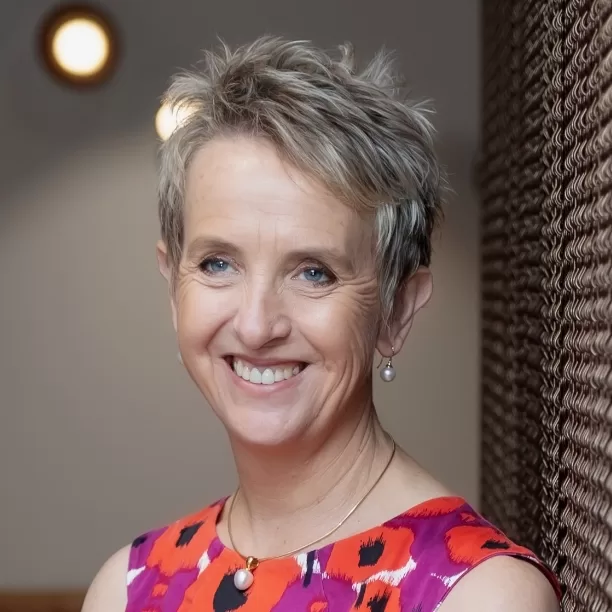What have I learnt recently?
I was listening to the “Thriving Business” podcast with Kate de Jong and Sam Morris earlier today, talking about how we have a tendency to avoid sharing our mistakes in business and the shame we have about our business failings and the things that didn’t work out. They made the point that making mistakes and failed initiatives are all part of our journey of trial and error, on the path to success.
The comment was also made that if we were willing to be a bit more open about our stuff ups and what we’ve learned from those mistakes, we’d be paying it forward and helping others to avoid those same mistakes. Point taken. Here are a few things that I have been beating myself up about recently, and I beat myself up a lot. So, I’ll start with that.
Being kinder to myself
Recently I had a couple of weeks where I was feeling under the weather – generally nauseous, lethargic and lack lustre. Compounded by falling off my bike which didn’t help my physical wellbeing, but also resulted in 4 medical appointments in a week that I hadn’t budgeted for in time or in $.
During this time I was lacking in energy, motivation and inspiration and just did the minimum amount of work. Only what was essential got done. Preparing for that workshop, writing that media post and blog article, making that call, attending that event – simply didn’t happen.
Of course, the chatter in my head was “I need to do that, I should do this “and in a one-woman business, if I don’t do it, it doesn’t get done. The hard bit for me is accepting that sometimes I’m not going to be up to it and that’s perfectly normal and it’s actually ok. The learning is to ensure that I allow some buffer in my calendar for these known unknown events that are going to impact on my productivity, giving me some wriggle room. Telling myself I am human; I am allowed to get sick and I know all of my clients would empathise if I had to re-arrange a commitment for personal or family reasons. As I’m writing this it all sounds a bit stupid, but at the time, I had this overriding drive to keep going and not let anyone down.
Know your audience
I facilitated a financial literacy workshop recently which I felt started very awkwardly because I wasn’t getting much engagement with the participants. On reflection, this was because I hadn’t established any connection with the people in the room. And this is so unlike me because as a facilitator I usually make a lot of effort to try and get to know the participants and build some rapport. On that day, a combination of circumstances put me off my stride.
A week later I facilitated another workshop for a different client where I took on board my learnings from the previous week and invested a lot of time establishing rapport with the participants. At the time I felt this was going well with lots of engagement, people were being very open, welcoming and receptive. As a facilitator, this is a good feeling. Afterwards I received some feedback that as the group know each other well, they didn’t need an icebreaker, they are task focused and like to get straight down to business. I wish I had known (or anticipated that) beforehand!
What I’ve learnt from this experience is to get to know my audience on a much deeper level. When preparing workshops to ask the client questions like:
- how well the participants know each other;
- what is their level of trust and psychological safety with each other;
- what is their preferred style of working and learning; and
- is there anything else about the participants and group dynamics I need to consider to optimise the outcomes of the session?
Not to shoulder responsibility that’s not mine
I’m very reflective, naturally self-critical and will always question my part in things. I am one of those people that will replay over and over again the same thing in my head. Especially when things haven’t gone so well – what I said, what I did, what part did I play, what could I have done differently.
I am working with a couple of clients as their business coach in Perth at the moment whose cashflow is tight. I have been working with them for a few months in a consulting & coaching capacity. As a CFO by background, I can’t help but take responsibility upon myself that I should have been able to assist them more to avoid their current predicament.
In making the shift from being an employee to a consultant, I frequently have to give myself a little talking to about not taking on responsibility for things that I am not accountable for. I have always thought that I was quite good at documenting the scope of my engagements with clients, but what I’ve learnt recently is that for my own piece of mind I can get better at clarifying expectations. Clearly articulating what I will be doing, and as importantly what I won’t be doing to avoid any ambiguity. This might help me get the “monkey off my back”.
Knowing when to be more assertive
I wouldn’t say I’m a shrinking violet, but I probably come across as quite pleasant, quietly spoken and sometimes have a tendency to talk around things indirectly. (Those that have worked with me in the past and my husband are likely to be scratching their heads at this point because they know I can be very direct, call a spade a spade and have hurt some feelings along the way.)
Working in the capacity of a CFO consultant, business coach and a non-executive director, the nature of the working relationship means that I think I’ve shifted how I communicate to be far less direct. Some might say more diplomatic.
A couple of things have cropped up recently that have made me realise I have shifted too far the other way. And that there are situations where, as a consultant I need to be more direct, even if the message is one the client doesn’t want to hear. They’re not paying me for platitudes.
As a non-executive director, I’m there to fulfil a statutory role and in doing so make considered observations, ask some hard questions, be assertive with requesting the information that is needed to inform decisions, and where necessary directing the Executive on what the Board require. My learning is to recognise when a more direct style of communication is needed.
If there’s one small thing that I have written that resonates with you, and helps you to avoid making the same mistake, connect with me and let me know. I would love to hear from you. There’s so many valuable lessons we can learn from sharing our mistakes in business!










